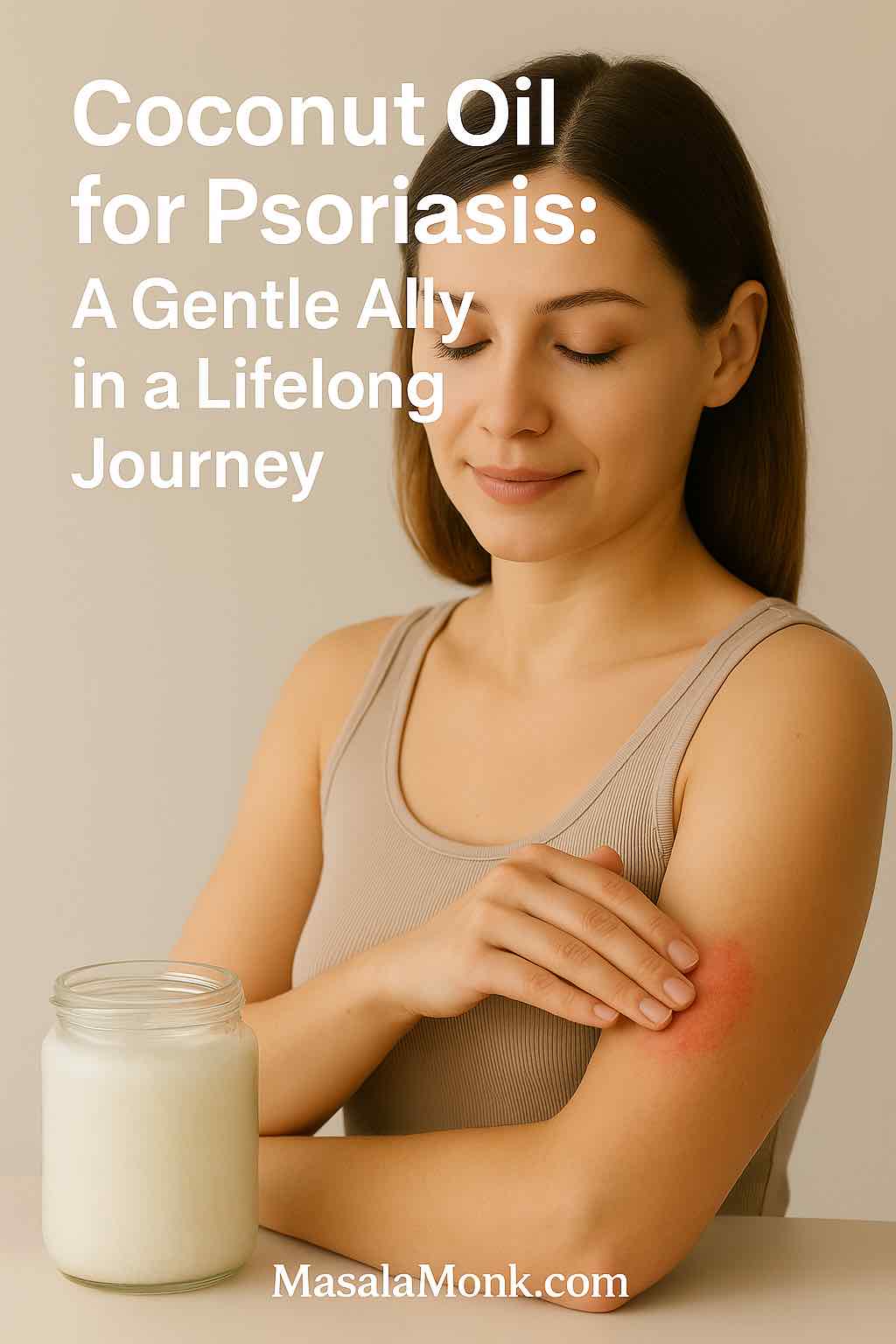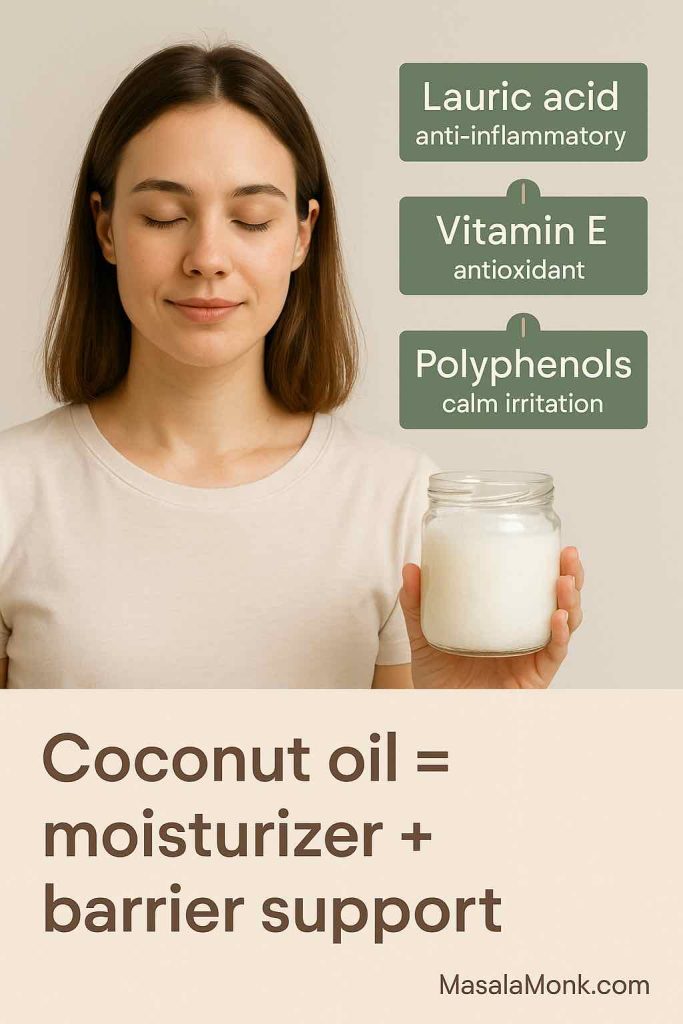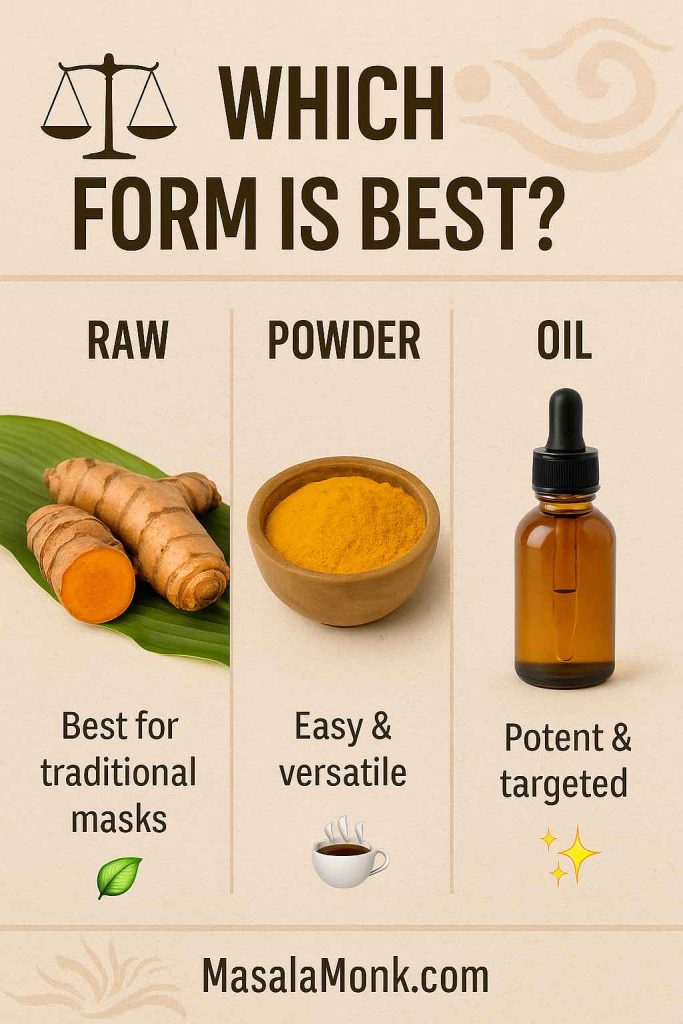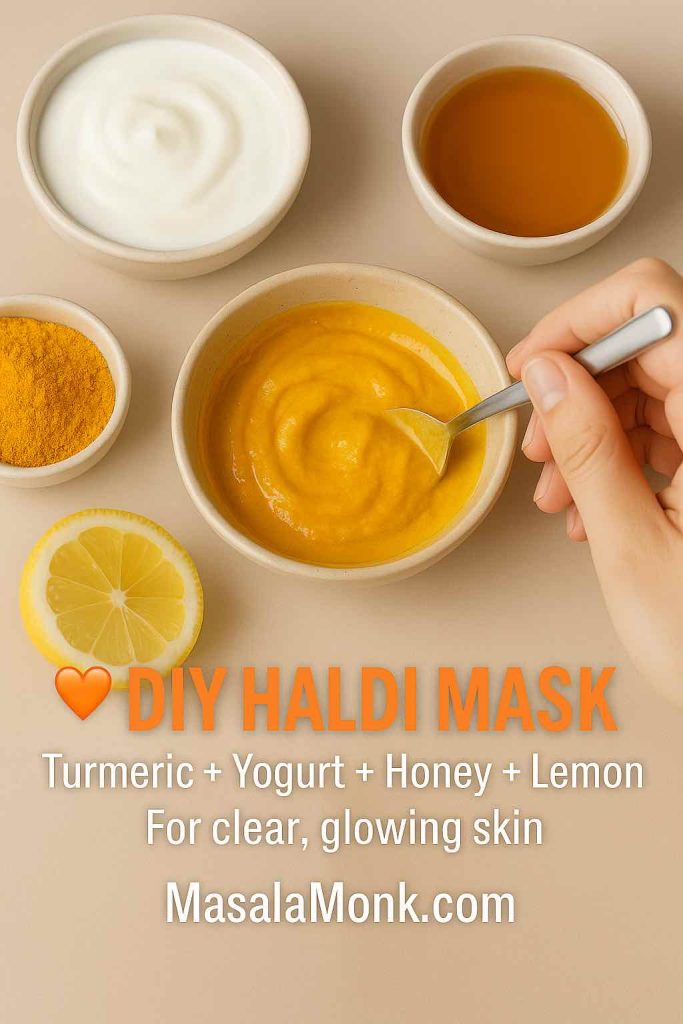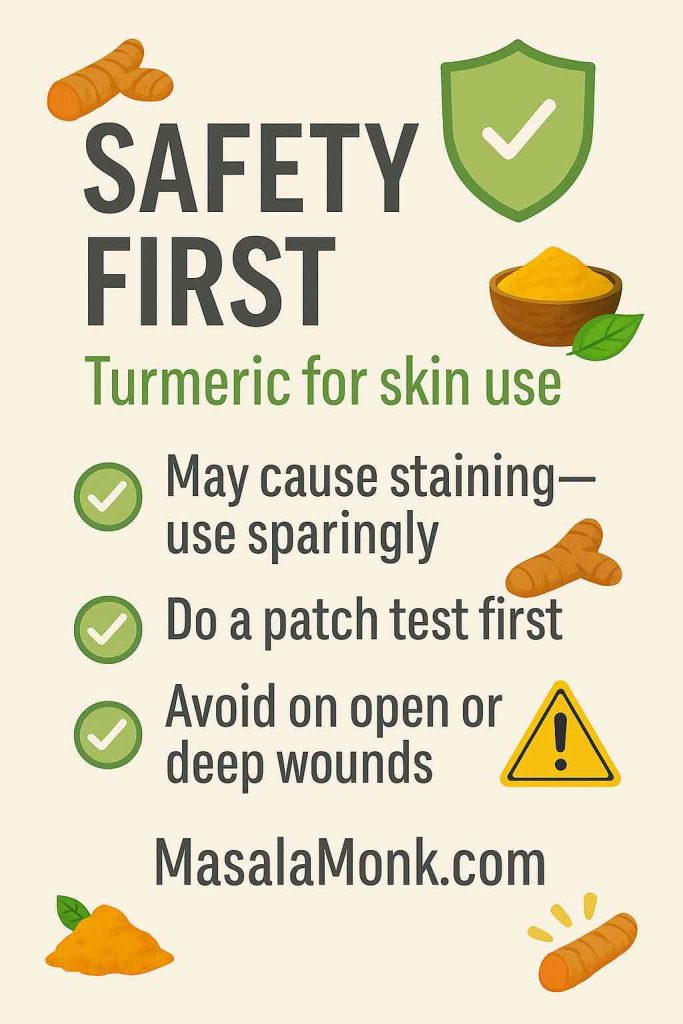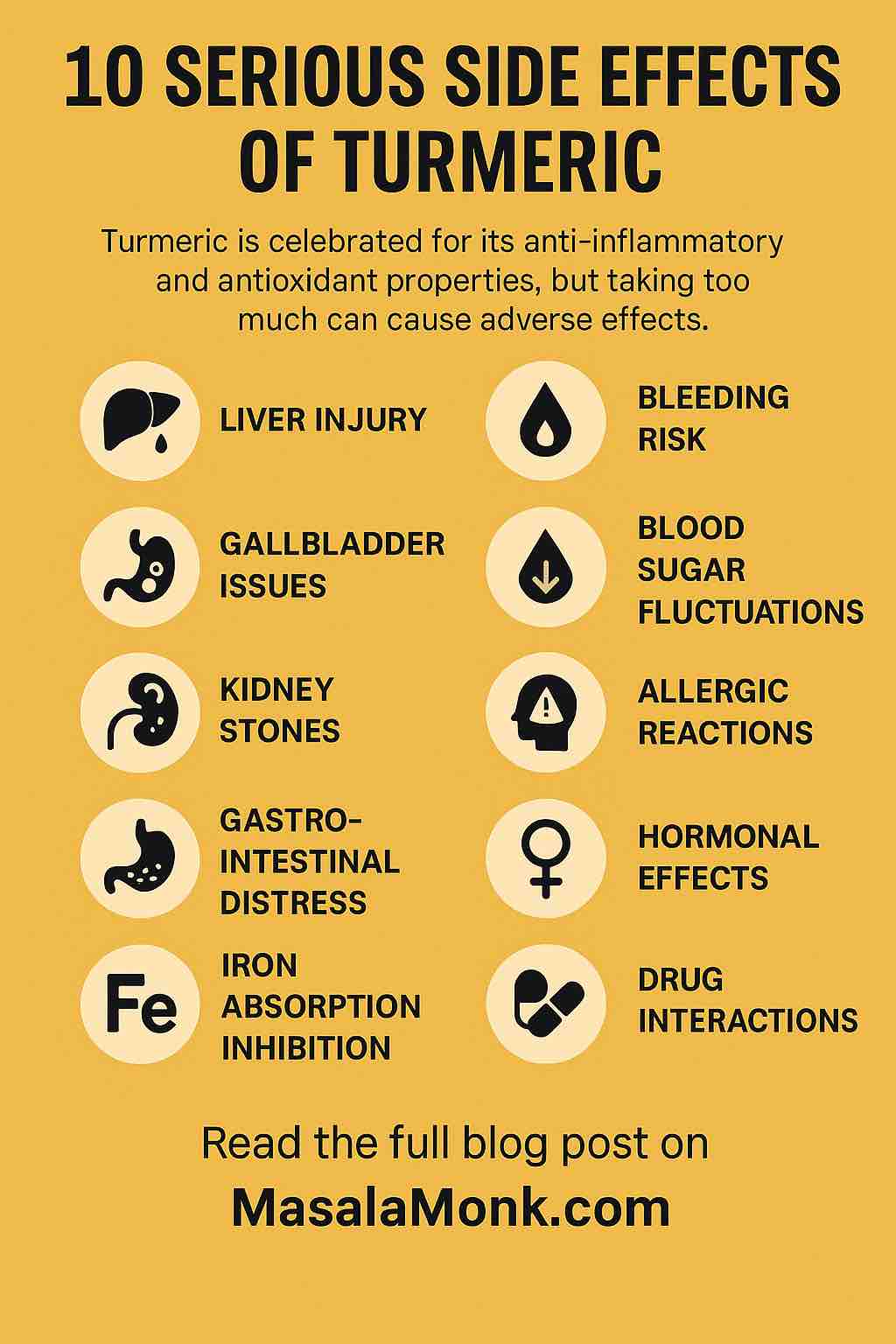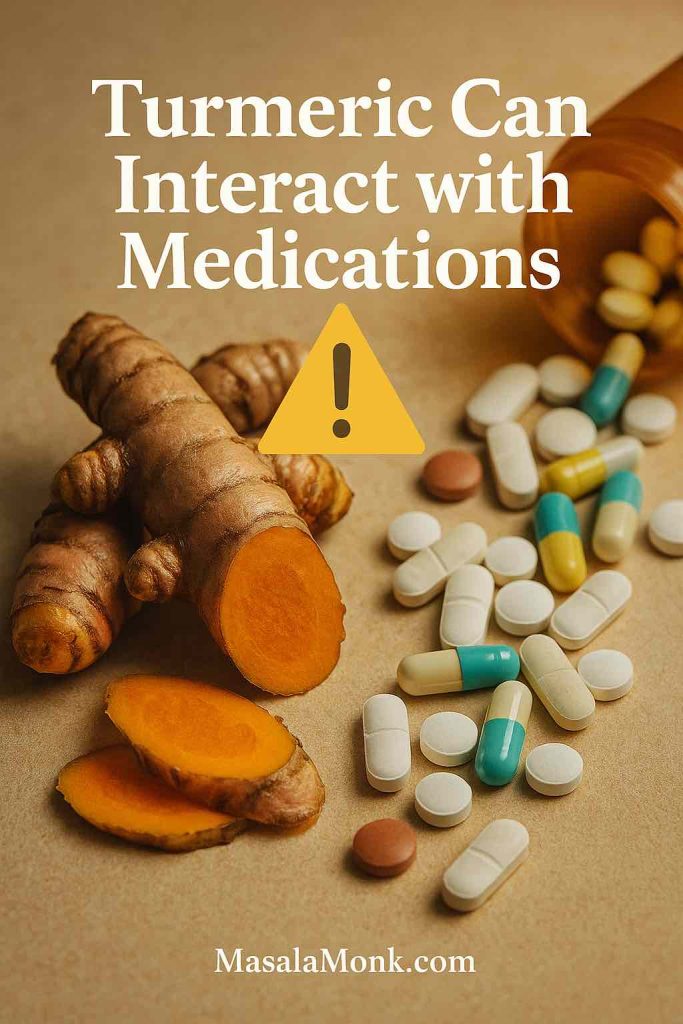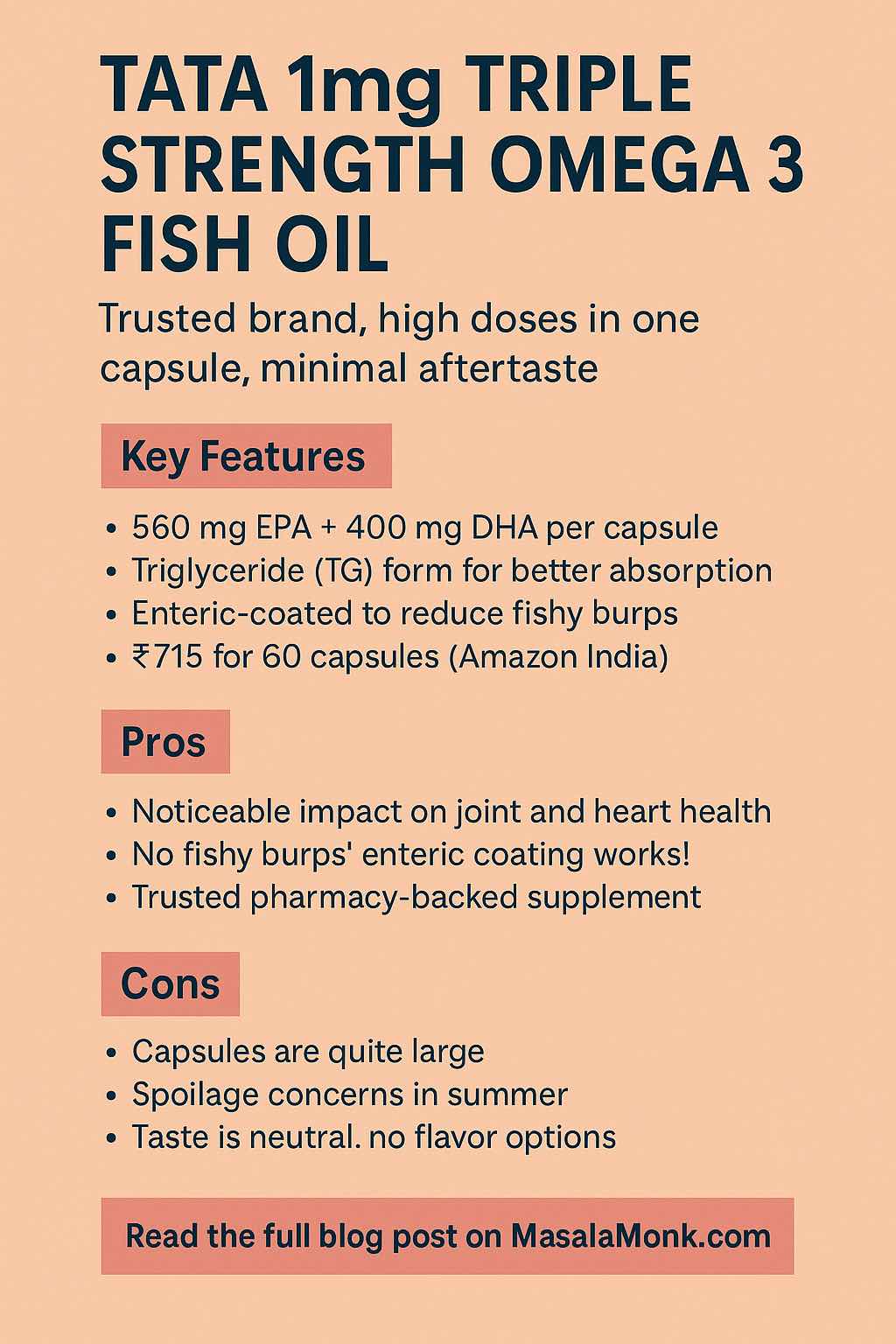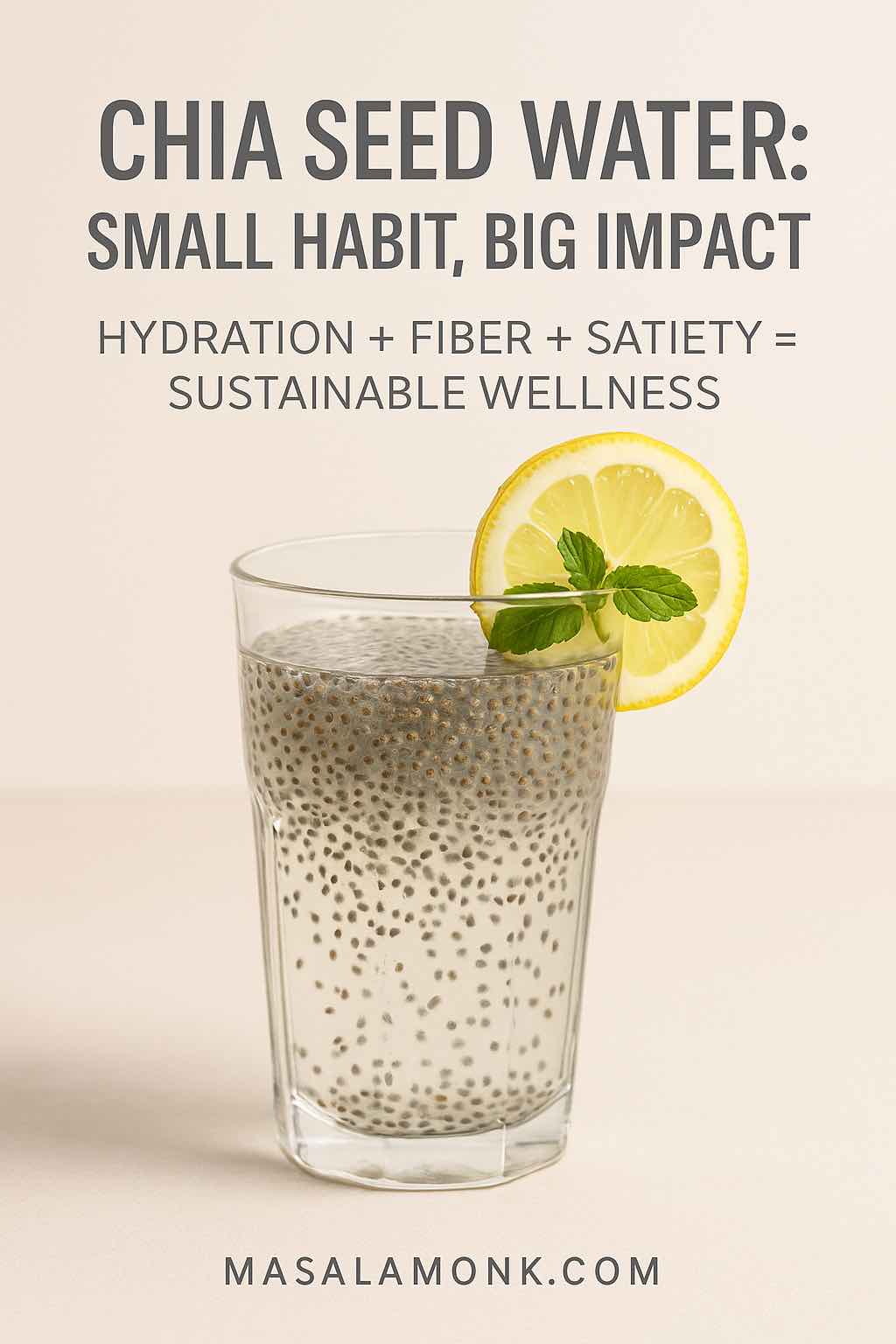
If you’ve been scrolling TikTok or Instagram lately, you’ve probably come across the so-called “internal shower”—a spoonful of chia seeds, a glass of water, maybe a squeeze of lemon, and voilà: chia seed water. Trendy? Absolutely. But the reason it’s sticking around isn’t just hype. Chia seed water is one of the easiest, most repeatable ways to get fiber and hydration together in one simple glass. That combination can help you feel pleasantly full, support regular digestion, and gently back up your weight-management goals.
It’s important to be upfront: there’s nothing magical about the water. The benefits come from the chia seeds themselves—tiny nutrition powerhouses packed with fiber, omega-3s, and minerals—and from the habit of drinking them in water. What the water does is make the seeds safe, digestible, and consistent enough to build into your routine. Their soluble fiber forms a gel in the gut that slows digestion and helps you feel fuller for longer. For a deeper dive into how chia interacts with blood sugar and glycemic control, check out this guide on chia seeds and glycemic index.
What Research Actually Says
Let’s look at the evidence, because a lot of the online chatter makes chia seed water sound more dramatic than it is.
- On weight and waist: A 12-week randomized trial published in the Journal of Nutrition and Metabolism found that adults who consumed chia flour daily lost an average of 1.1 kg and reduced their waist circumference by about 1.9 cm. Modest? Yes. Meaningful? Definitely, especially over time (Vuksan et al., 2015, PubMed).
- On broader health markers: A 2024 systematic review and meta-analysis in Nutrients concluded that chia consumption in overweight adults led to reductions in waist circumference, blood pressure, and C-reactive protein (a marker of inflammation). The authors noted that changes in overall weight were smaller, but central fat and metabolic improvements were consistent (Nutrients, 2024).
- On water itself: Water isn’t a fat burner, but it does help when used strategically. A randomized controlled trial in Obesity (2010) showed that drinking 500 ml of water before meals led to greater weight loss compared to diet alone (Dennis et al., 2010, PubMed). And a systematic review in Nutrition Reviews (2019) found that strategies such as pre-meal water and replacing sugary drinks with water consistently reduced calorie intake and supported weight loss (Muckelbauer et al., 2019, PubMed).
The takeaway: chia seed water works not because it melts belly fat, but because it helps you eat a little less, stay hydrated, and make small, sustainable shifts.
Explore more Chia Seed Recipes and goodness in our post 10 Creative Chia Pudding Recipes for Every Taste.
How to Make Basic Chia Seed Water
Chia seed water is wonderfully simple, but there are a few tricks that make it go from “slimy” to actually enjoyable. Here’s a step-by-step guide that readers can follow with confidence.
Ingredients for one glass:
- 1 tablespoon chia seeds
- 250–300 ml water (about one regular glass)
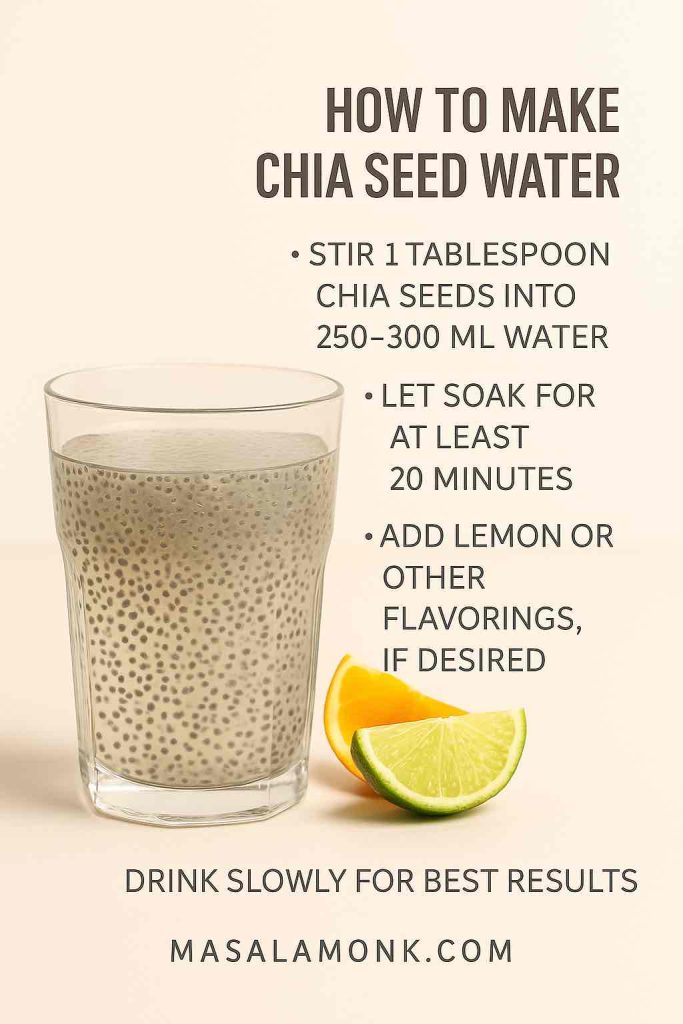
Step 1 — Pick your seeds wisely.
Black and white chia seeds are nutritionally almost identical, but fresher seeds plump up faster and taste less bitter. Store them in a sealed jar in a cool, dark place to keep their natural oils from going rancid.
Step 2 — Stir, don’t sprinkle and forget.
Chia seeds naturally want to clump. Add them to the glass of water and stir well for 20–30 seconds. Then let the mix sit for 5–10 minutes and stir again. This second stir breaks up clumps and ensures every seed forms its own gel coat.
Step 3 — Soak for at least 20 minutes.
In that time, chia seeds can absorb up to 10–12 times their weight in liquid, forming a gentle gel (called mucilage). This gel is what slows digestion and helps with satiety, as explained in Healthline’s guide on chia in water. A quick sip after only two or three minutes won’t give the same texture or fullness effect.
Step 4 — Adjust to taste.
The base recipe is neutral. Add a squeeze of lemon, a sprig of mint, or even a cinnamon stick if you want natural flavor without sugar. If you’re using chia water mainly for fullness before meals, keep it plain or citrus-based so you don’t add hidden calories.
Step 5 — Drink it slowly.
Chia water is more satisfying if you sip it over 5–10 minutes, rather than chugging. The gel texture encourages mindful drinking and gives your stomach time to send “I’m filling up” signals to the brain.
Overnight option:
For the smoothest texture, make a larger batch at night—say 3 tbsp chia + 750 ml water in a jar—and refrigerate. In the morning, you’ll have a ready-to-drink jar with a silky, pudding-like feel. This is also the safest way to ensure the seeds are fully hydrated.
Recipe Variations People Actually Love
People rarely stick with plain chia water forever. The variations below are the ones most often searched for—and for good reason. They’re not just tasty; they also bring small nutritional twists that make the habit easier and more enjoyable.
Chia Lemon Water (the “internal shower”)
- How to make: 1 tbsp chia + 250–300 ml warm water + juice of ½ lemon. Optional: add grated ginger, mint leaves, or a pinch of cinnamon.
- Flavor & feel: Zesty, refreshing, with a spa-water vibe.
- Why it’s popular: Lemon boosts vitamin C, which supports skin and immunity. Ginger aids digestion; mint cools and soothes. Cinnamon helps blunt sugar cravings.
- When to drink: First thing in the morning to rehydrate after sleep, or 20 minutes before a meal to reduce appetite.
- Research angle: The American Association of Poison Control Centers noted that chia seed water, when properly soaked, can help relieve constipation and improve regularity—but warned against drinking it too soon after mixing, which can cause discomfort (Poison.org).

This isn’t a TikTok gimmick—it’s rooted in real benefits. If you’re looking for even more ideas beyond water, here are 5 ways to use chia seeds with Indian food that make them easy to add into your everyday meals.
Chia Coconut Water (hydration booster)
- How to make: 1 tbsp chia + 250 ml coconut water. Optional: pineapple chunks or a couple of basil/tulsi leaves.
- Flavor & feel: Naturally sweet, tropical, and cooling.
- Why it’s popular: Coconut water supplies potassium and magnesium—electrolytes that help replace what you lose through sweat. Pineapple adds bromelain, a digestive enzyme, while basil brings calm and freshness.
- When to drink: After workouts, long walks, or hot summer days.
- Research angle: The Cleveland Clinic highlights coconut water as a healthier alternative to soda, though it’s lower in sodium than sports drinks—so best for light activity, not endurance events (Cleveland Clinic).
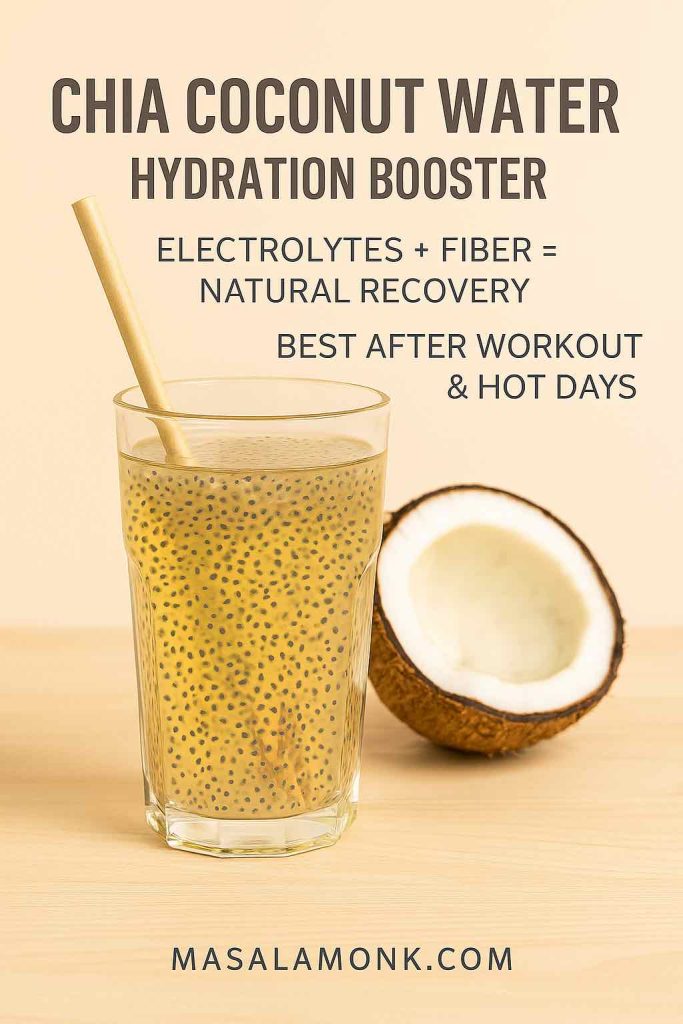
Read more about The Power of Coconut Water: Unpacking the Health Benefits.
Overnight Soaked Chia Water (silky and ready to go)
- How to make: Mix 1–2 tbsp chia + 300 ml water in a jar. Add apple slices and a cinnamon stick for natural sweetness. Refrigerate overnight.
- Flavor & feel: Smooth, mild, lightly spiced. Almost like a thin pudding.
- Why it’s popular: Zero morning prep. The seeds are fully hydrated, making it gentler on digestion and easier for chia beginners.
- When to drink: First thing in the morning, especially if you want to avoid decision fatigue.
- Practical tip: Start small—½ tsp chia per glass—and build up to 1 tbsp over a week. This prevents bloating and makes it easier to stick with the habit.
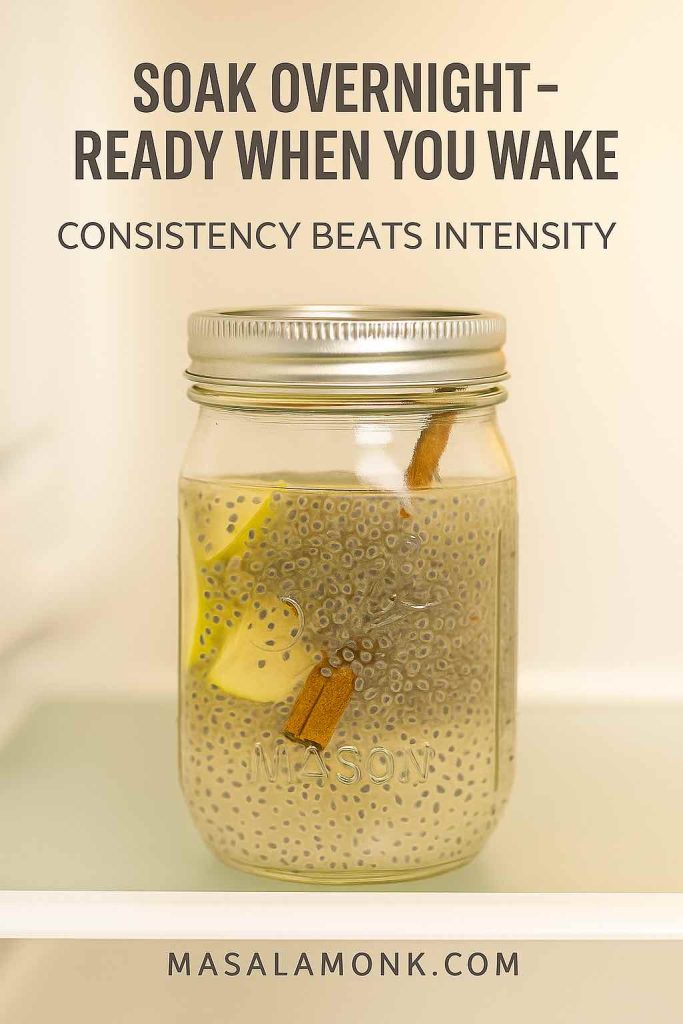
Chia Fresca (traditional agua de chía)
- How to make: 1 tbsp chia + 250 ml cold water + juice of 1 lime. Optional: ½ tsp honey, or turmeric + black pepper for an anti-inflammatory twist.
- Flavor & feel: Crisp, tangy, energizing.
- Why it’s popular: This isn’t a TikTok invention—it’s a long-standing Mexican refreshment, often enjoyed on hot afternoons. Light, hydrating, and culturally rooted.
- When to drink: Midday, or alongside a light snack instead of reaching for soda.
- Upgrade ideas: Add parsley or cilantro for a fresh, detox-like taste.

Chia + Juice (occasional treat)
- How to make: 1 tbsp chia + 125 ml 100% juice (orange, pineapple) + 125 ml water. Or, swap juice for cooled green tea with a spoonful of berry purée.
- Flavor & feel: Bright, fruity, satisfying.
- Why it’s popular: Juice makes chia water taste like a fun drink, not a wellness chore.
- When to drink: A few afternoons a week, especially if you’d otherwise grab soda or packaged iced tea.
- Research angle: A 2025 umbrella review in JAMA Pediatrics concluded that moderate 100% juice intake doesn’t cause weight gain in adults, but extra calories can add up if portions aren’t controlled (JAMA Pediatrics, 2025). Diluting juice with water is the best of both worlds: flavor + moderation.
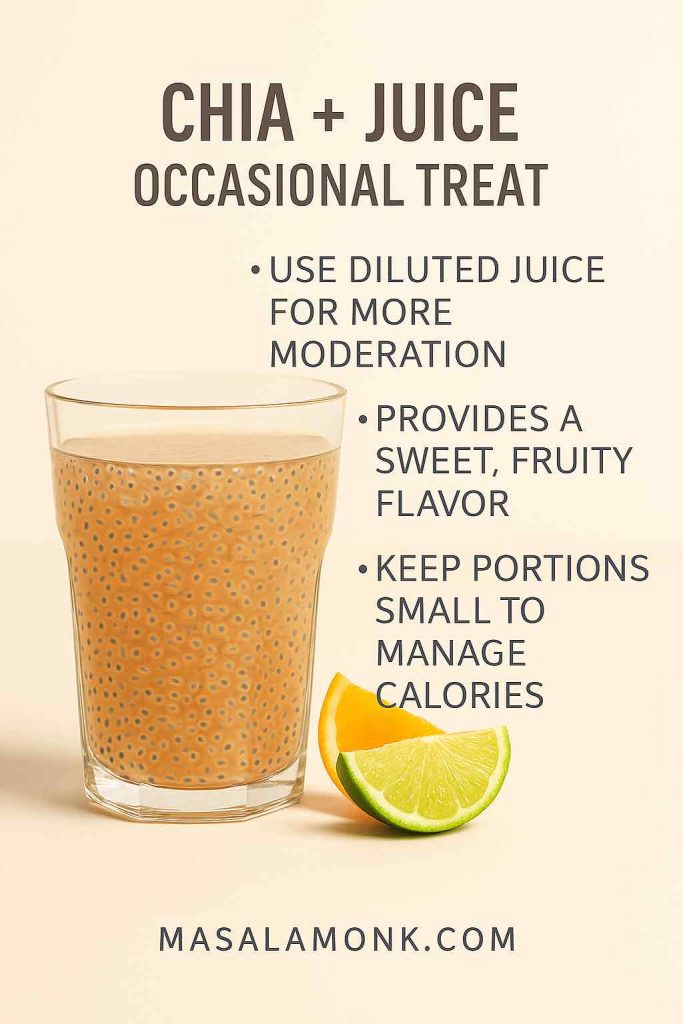
👉 Each of these variations follows the same core principle: chia + liquid + patience. What changes is the flavor and the little extra nudge from citrus, herbs, or electrolytes. Those details matter not because they torch fat, but because they keep you sipping. And the more often you sip, the more consistent the benefits become.
Best Times to Drink Chia Seed Water
The beauty of chia seed water is that you can drink it almost any time of day. But if your goal is weight management, hydration, or simply smoother digestion, timing matters. Let’s break it down.
Morning: a gentle reset
Waking up means you’ve gone 7–9 hours without fluid. Starting your day with a glass of chia seed water is like topping up your tank—hydration plus a dose of fiber. Many people describe it as a way to “start lighter” and avoid the mid-morning snack urge. The overnight-soaked version is especially handy here because it’s already ready to sip when you roll out of bed.

Before meals: the most strategic slot
If weight management is part of your goal, this is where chia seed water shines. Research published in Obesity (2010) found that drinking 500 ml of water before meals helped adults eat less and lose more weight compared to diet alone (Dennis et al., 2010, PubMed). Pairing that strategy with chia’s gel-like fiber makes the effect stronger: you feel full sooner, so you naturally reduce portions without forcing yourself.
Midday or afternoon: beating the slump
Instead of grabbing a soda, iced latte, or packet of chips, a tall glass of chia fresca (lime + chia + water) or chia coconut water can scratch that “I need something” itch. Here, chia helps curb cravings, while electrolytes or citrus give you a lift. A systematic review in Nutrition Reviews (2019) noted that replacing caloric beverages with water is one of the most effective, evidence-based ways to reduce daily calories (Muckelbauer et al., 2019, PubMed).
Evening: the calming ritual
If you like the idea of winding down with a drink, chia seed water works fine—just keep it light and not right before bed. A cinnamon-apple overnight version can double as a soothing “pre-bed” sip. The main watch-out here is fullness: chia expands, and too much liquid fiber right before lying down can feel heavy.
Takeaway: The two most powerful times are first thing in the morning and 20–30 minutes before meals. The rest is flexible—listen to your body, your schedule, and what helps you stick with it.
Small Habits That Make It Work
It’s one thing to try chia seed water once; it’s another to make it part of your lifestyle. These small details help turn a trend into a sustainable, supportive habit.
Stir twice, always.
The first stir coats the seeds, the second (after 5–10 minutes) breaks up clumps. This ensures every seed forms its gel properly and the drink feels smooth instead of slimy.
Ramp up fiber slowly.
If your body isn’t used to chia, start with 1 teaspoon per glass for a few days, then move to 2 teaspoons, and finally 1 tablespoon. This principle is part of why a high-protein, high-fiber diet supports weight loss more sustainably than quick fixes. Jumping straight in can lead to bloating or discomfort. Healthline emphasizes this “go slow and soak well” approach as the best way to get chia’s benefits without the side effects (Healthline).
Choose warm, not hot.
Boiling water can damage chia’s delicate texture, turning the gel unpleasant. If you want a cozy drink in the morning, use warm water—about the temperature you’d sip tea at once it cools.
Keep sweeteners occasional.
Honey, maple syrup, or juice can make chia water delicious, but remember: the biggest weight-loss benefit of chia water comes from replacing caloric drinks with low-calorie hydration. A systematic review confirmed this as one of the most effective strategies for weight management (Muckelbauer et al., 2019). If you want sweetness, keep it modest and intentional.
Use coconut water situationally.
Coconut water is great for hot weather or after a workout because it contains electrolytes like potassium and magnesium, but it still carries calories. The Cleveland Clinic suggests treating it as a hydration tool, not a daily water substitute (Cleveland Clinic).
Pay attention to how you feel.
Everyone’s gut reacts differently to fiber. Some people feel lighter and more regular within days; others may need to scale intake. Consistency matters more than intensity.
Why These Details Matter
Chia seed water doesn’t work because of flashy claims or quick fixes. It works because small, thoughtful tweaks—timing it before meals, stirring properly, swapping it for soda, making it taste good—add up to better habits you can actually stick with. That’s what the research shows, and that’s what real people find most useful.
And if you want more practical inspiration, check out these chia-based high-protein meal prep ideas you can try alongside your water habit.
The Bottom Line
Chia seed water works because it’s simple and sustainable. The seeds provide fiber, omega-3s, and minerals; the water enhances satiety and hydration; and flavor variations (lemon, coconut, lime) keep it enjoyable. Research suggests you can expect modest, gradual improvements in weight and waist circumference if this habit consistently replaces higher-calorie drinks and helps you feel satisfied before meals.
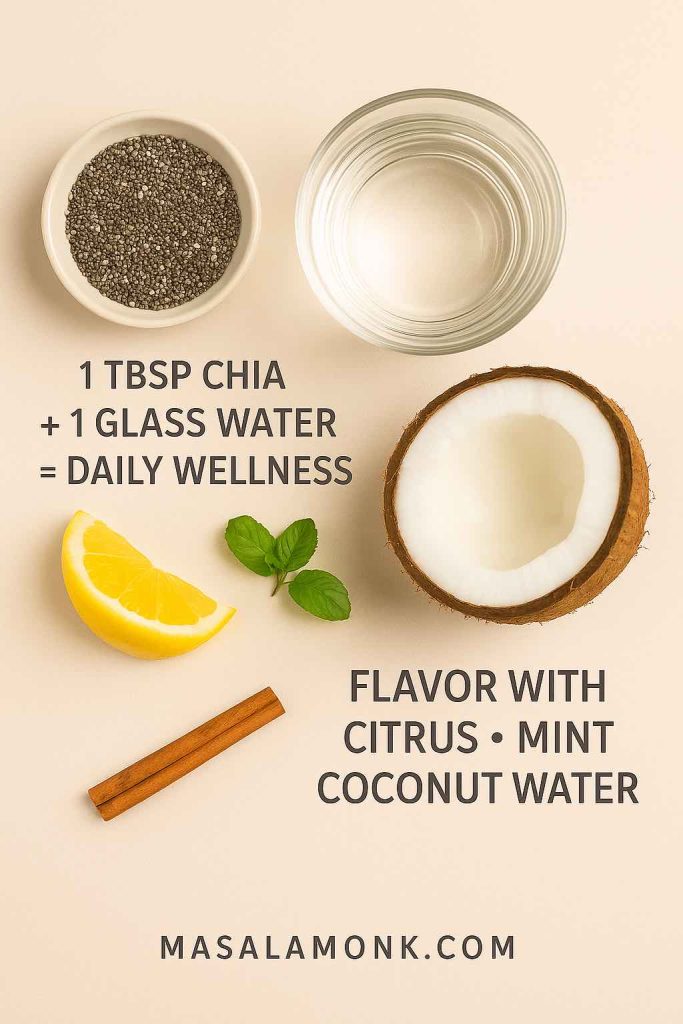
It won’t “melt belly fat” overnight, but it can quietly amplify the healthy habits that do matter—hydration, portion control, regular digestion, and sticking with a plan. Think of it as a small daily lever that makes the rest of your wellness routine easier to keep.
While we are on belly fat, you might want to read: Apple Cider Vinegar and Belly Fat: Does It Really Work?.
Frequently Asked Questions About Chia Seed Water
1. Does chia seed water really help with weight loss?
Yes, but in a realistic way. Chia seeds are rich in soluble fiber, which swells in water to form a gel that promotes fullness and helps you naturally eat less. Combined with drinking water before meals—already proven in randomized trials to support weight loss—chia seed water can give you an edge. For example, a 12-week clinical trial found participants lost about 1.1 kg in weight and 1.9 cm in waist circumference when chia was added daily (Vuksan et al., 2015, Journal of Nutrition and Metabolism). Think of it as a supportive habit, not a quick fix.
2. Can chia seed water burn belly fat?
No drink can “melt” belly fat. What chia seed water does is help you feel satisfied sooner and avoid unnecessary snacking or extra calories. Over time, this can reduce overall and abdominal fat as part of a balanced diet and active lifestyle. A 2024 meta-analysis in Nutrients confirmed that chia consumption reduced waist circumference and improved blood pressure and inflammation markers, even when overall weight change was modest.
3. How much chia seed water should I drink daily?
Most people find 1 glass per day (about 1 tablespoon of chia seeds soaked in 250–300 ml of water) is a good place to start. Some go up to two glasses if they tolerate fiber well. If you’re new to chia, begin with 1 teaspoon per glass and gradually increase to avoid bloating.
4. Is it safe to drink chia seed water every day?
Yes, it’s safe for most healthy adults—provided the seeds are fully soaked. Chia can absorb 10–12 times its weight in liquid, so drinking them dry or under-soaked may cause discomfort. Healthline recommends always letting them sit at least 20 minutes, or overnight for best results. If you have gut sensitivities or are on medication, check with a doctor first.
5. What’s the best time to drink chia seed water for weight loss?
The two most effective times are:
- First thing in the morning — to rehydrate and set a steady appetite rhythm.
- 20–30 minutes before meals — to enhance satiety and naturally reduce portions.
This lines up with research from Obesity (2010), which showed that 500 ml of water before meals increased weight loss compared to diet alone. Adding chia makes that effect even more powerful.
6. Can I add lemon, coconut water, or juice to chia seed water?
Absolutely. Variations are what keep the habit enjoyable:
- Chia lemon water: boosts vitamin C and freshness.
- Chia coconut water: adds electrolytes like potassium—great post-workout (Cleveland Clinic).
- Chia + juice: tasty, but dilute with water to manage calories. A 2025 review in JAMA Pediatrics found moderate 100% juice intake is fine for adults, but extra calories can add up if portions are large.
7. Are there any side effects of chia seed water?
The main issues are bloating and gas if you increase fiber too quickly, or choking risk if the seeds aren’t soaked long enough. Lemon can also affect tooth enamel if sipped all day—using a straw or rinsing afterward helps. Start small, soak thoroughly, and you’ll likely avoid problems.

